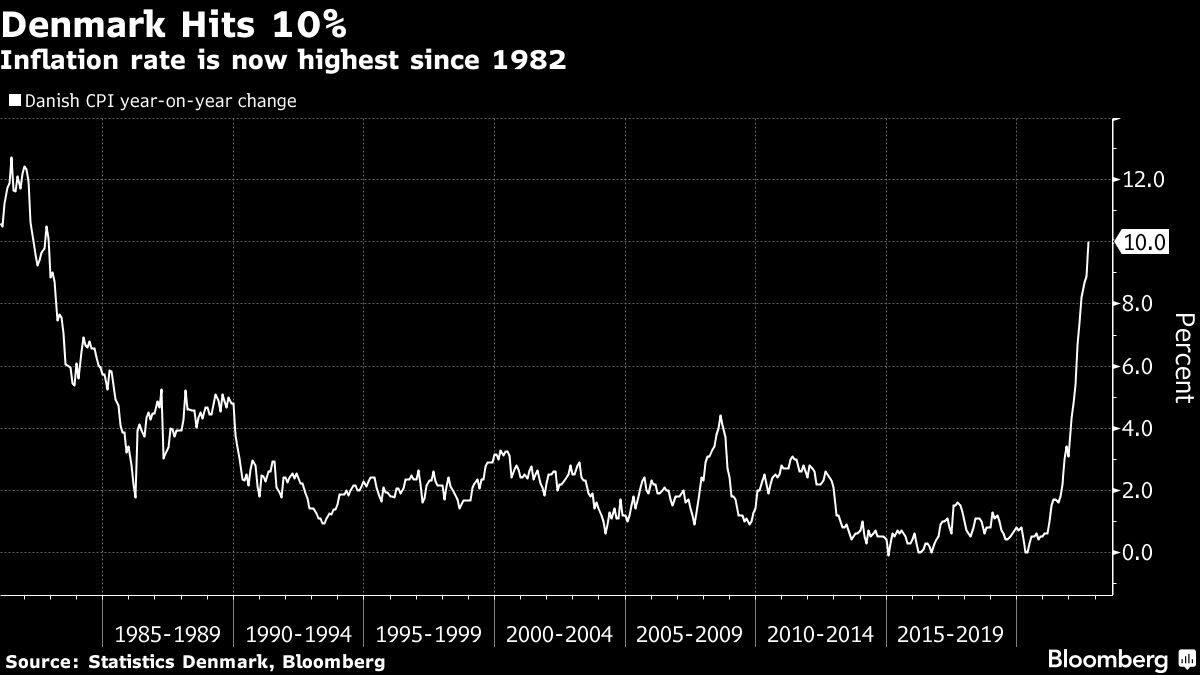
(Bloomberg) — Denmark’s inflation rate jumped to double digits for the first time in four decades, underscoring the likelihood that higher prices for goods and energy are pushing the Nordic country’s economy into a recession.
Most Read from Bloomberg
The consumer price index jumped 10% in September from a year earlier, up from 8.9% a month before, Copenhagen-based Statistics Denmark said on Monday. The average estimate in a Bloomberg survey for September’s inflation rate was 9.6%.
Most economists expect that gross domestic product is declining at the moment after Denmark’s growth rates outperformed peers during the pandemic. Consumer confidence is at the lowest since the data set was introduced in the early 1970s.
The higher cost of living “is now hurting very badly and is set to reduce consumption further,” Mathias Dollerup Sproegel, a senior economist at Sydbank, said in a note. “Consumers are keeping their money in their pocket now and it will hurt large parts of the economy.”
Denmark’s central bank last month said rising inflation poses the biggest threat to the economy which it expects will contract next year, and it warned that the government should tighten spending to avoid a self-reinforcing wage-price spiral. The Nordic country is facing an election on Nov. 1 and both the government and the opposition are promising they will do more to ease the cost of living.
Still, there were also bright spots in Monday’s data, as prices for food fell between the months of August and September, Louise Aggerstrom Hansen, a chief analyst at Danske Bank, said.
“We expect that the inflation rate will decline already in October, mainly helped by lower electricity and gas prices,” she said in a note. “Overall, the inflation rate will depend on the development in energy prices, which are extremely difficult to predict.”
Most Read from Bloomberg Businessweek
©2022 Bloomberg L.P.




